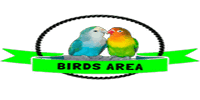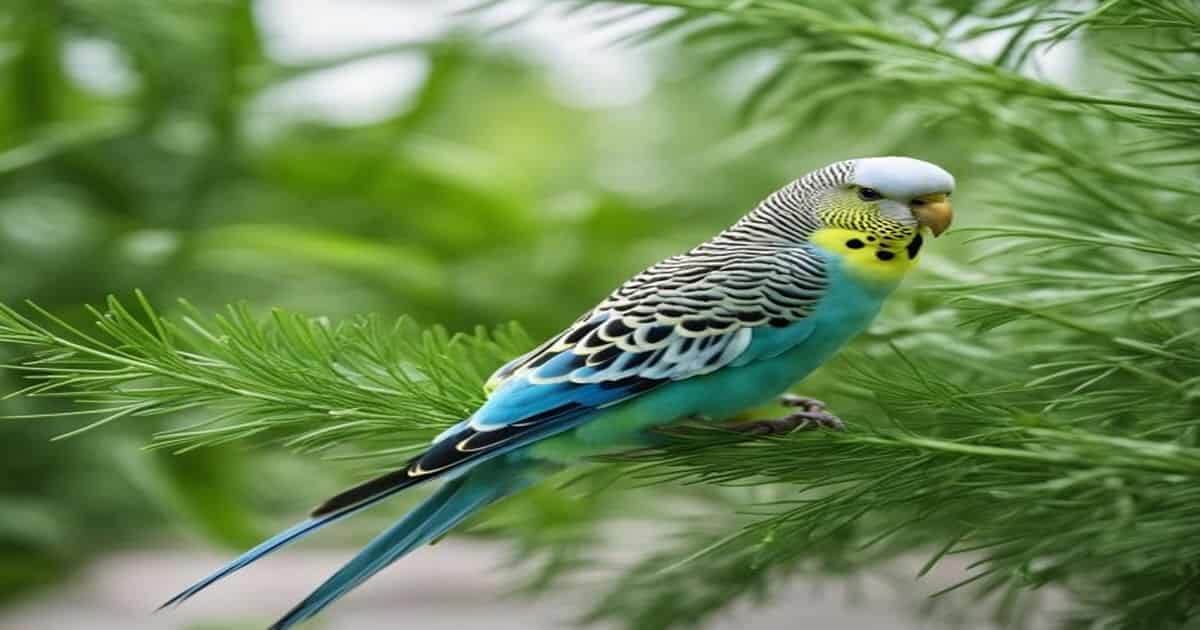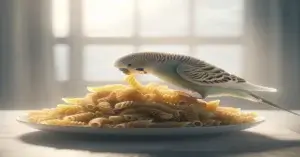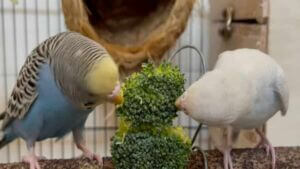Can Budgies Eat Dill Safely? Expert Insights
Feeding small amounts of fresh dill to budgies is recommended to avoid any potential digestive issues. Additionally, dill is a good source of vitamin A, which is essential for a budgie’s overall health.
Remember to introduce any new food gradually to ensure your budgie tolerates it well. Overall, dill can be a healthy and enjoyable addition to a budgie’s diet when given in appropriate quantities.
Can Budgies Eat Dill? Unlocking the Secret
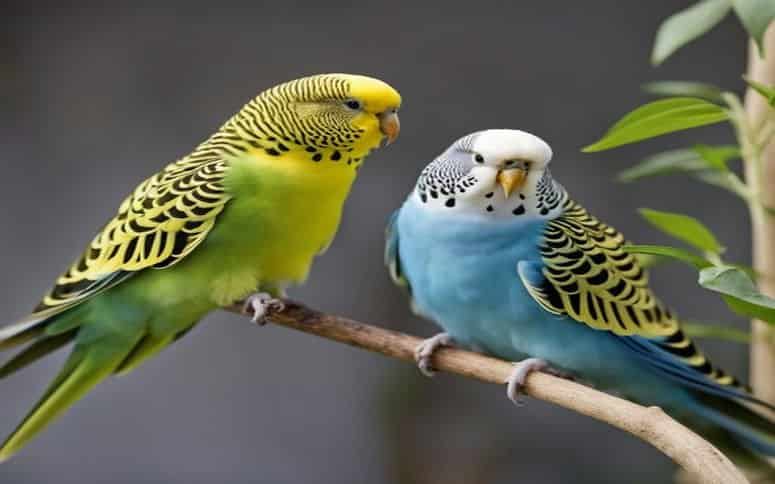
Yes, budgies can eat dill in moderation. Dill is considered safe for budgerigars, also known as budgies, as an occasional treat. In addition, it can provide some variety to their diet and can be a source of enrichment.
However, it should not make up a significant portion of their daily food intake.
Budgies have specific dietary requirements, and their main diet should consist of high-quality budgie pellets or a well-balanced seed mix, fresh vegetables and occasional fruits.
Dill can be offered as one of the vegetable options, but it should be provided in small amounts and not be a primary food source.
Is Dill Safe For Budgies? Benefits Of Dill For Your Budgie
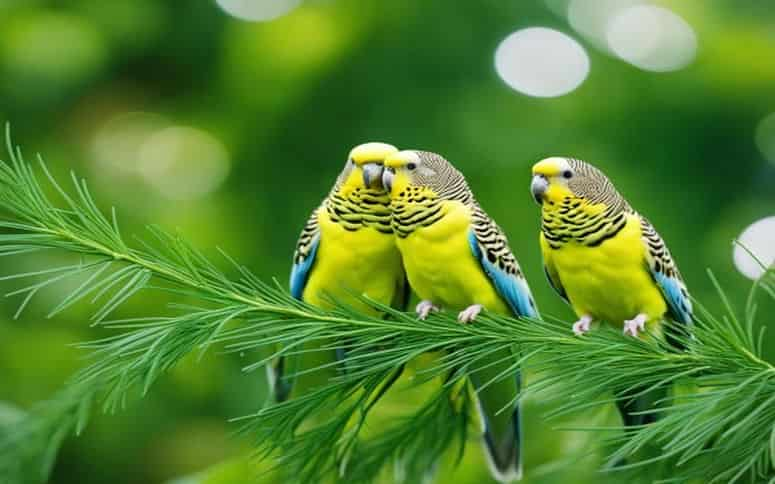
Dill is not only safe for budgies to eat, but it can also provide several benefits for their overall health.
Here are some reasons why dill can be a great addition to your budgie’s diet:
- Nutritional value: Dill is rich in vitamins and minerals, including vitamin C, vitamin A, calcium, and iron. These nutrients are essential for maintaining your budgie’s immune system, vision, and bone health.
- Digestion aid: Dill’s high fiber content can help regulate your budgie’s digestive system and prevent digestive issues. It can also promote a healthy bowel movement.
- Antioxidant properties: Dill contains antioxidants that protect your budgie’s cells from damage caused by free radicals. This can help prevent various diseases and promote overall well-being.
- Good for respiratory health: Dill has expectorant properties that can help alleviate respiratory issues in budgies, such as coughing or wheezing. It can also provide relief from congestion.
- Promotes appetite: The aroma and taste of dill can stimulate your budgie’s appetite, making it more likely to try and eat other foods.
Overall, dill can be a nutritious and flavorful addition to your budgie’s diet, providing various health benefits and promoting their overall well-being.
Nutritional Value Of Dill For Budgies
Dill, a herb known for its distinct flavor and fragrance, can be a safe and healthy addition to a budgie’s diet.
Here are some of the nutritional benefits that dill offers to budgies:
- Dill is a good source of vitamins and minerals, including vitamin A, vitamin C, calcium, and potassium. These nutrients are essential for maintaining overall health and supporting the budgie’s immune system.
- The high fiber content in dill promotes healthy digestion and can help prevent digestive issues in budgies.
- Dill contains antioxidants that help neutralize harmful free radicals in the budgie’s body, protecting it against oxidative stress and potential cell damage.
- The calcium found in dill is important for maintaining strong and healthy bones in budgies.
How To Feed Dill To Budgie?
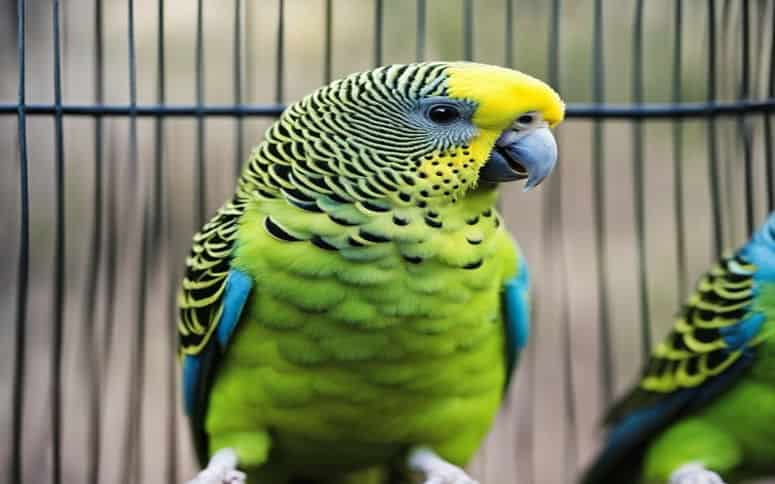
Budgies are small birds known for their love of variety in food. Dill, with its distinct flavor and aroma, can be a great addition to their diet. However, knowing how to feed dill to budgies is essential to ensure their safety and well-being.
Here are a few tips:
Introduce Dill Gradually
Start by offering your budgie a small amount of dill and observe their reaction. If they enjoy it and show no signs of digestive issues, you can continue to include it in their diet occasionally.
Wash And Chop The Dill
Before feeding the dill to your budgie, thoroughly wash it to remove any dirt or pesticide residue. Chop the dill into small, bite-sized pieces to make it easier for your budgie to eat.
Offer Fresh Dill
Dill is best served fresh to provide maximum nutritional benefits. Avoid giving stale or wilted dill to your budgie, as it may not be as appealing to them.
Monitor The Quantity
While dill can be a healthy addition to your budgie’s diet, it should be given in moderation. Too much dill can upset their digestive system.
Offer dill as an occasional treat rather than a staple food.
Variety is key
Budgies thrive on a diverse diet, so their meals should include many fruits, vegetables, and herbs.
Rotate dill with other safe herbs like basil, mint, and thyme to provide a varied and exciting diet for your budgie.
Observe Any Adverse Reactions
Every budgie is unique, and some may have allergies or sensitivities to certain foods. Keep a close eye on your budgie after feeding them dill for the first time.
If you notice any signs of discomfort, such as vomiting or diarrhoea, remove dill from your Budige diet and consult a veterinarian.
Following these guidelines can provide your feathered friend with a tasty and healthy treat.
Possible Risks Associated With Feeding Dill To Budgies
Feeding fresh herbs and greens to budgies (parakeets) can be beneficial, as they provide a source of vitamins, minerals, and other essential nutrients. Dill is among the herbs that are generally considered safe for budgies.
However, like with any new food item introduced to a budgie’s diet, there are some potential risks and considerations to be aware of:
| Risks | Details And Consideration |
|---|---|
| Pesticides and Chemicals | If not organically grown, dill may contain pesticides, herbicides, or chemicals. Wash thoroughly to remove residues. |
| Overfeeding | Dill should be a small part of a budgie’s diet to avoid digestive issues or nutritional imbalances. |
| Choking Hazard | Finely chop dill to minimize the risk of choking on large pieces. |
| Digestive Upset | Introduce new foods gradually in small amounts to monitor for any digestive upset. |
| Allergies or Sensitivities | Rarely, budgies may have allergies or sensitivities to certain foods. Observe the bird after introducing new items. |
| Mold or Bacteria | Provide fresh dill and produce; avoid moldy or rotten food as it can harm budgies. |
| Reduction in Essential Foods | Dill should complement, not replace, staple foods like pellets or seeds providing essential nutrients. |
| Potential for Toxicity | Ensure the substance offered is genuine dill and not a toxic look-alike plant. |
As always, consulting with an avian veterinarian is a good practice if you’re considering adding a new food to your budgie’s diet. They can provide specific guidance tailored to your bird’s health and needs.
Can Budgies Eat Dill Seeds?
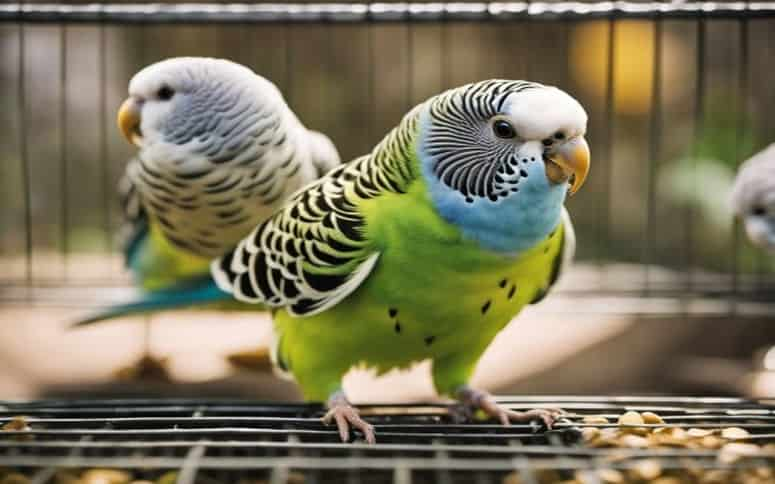
Yes, Budgies can safely eat dill seeds in moderation. Dill seeds are a rich source of fibre, which can aid digestion and promote bowel health in budgies.
The calcium content in dill seeds is beneficial for maintaining healthy bones in budgies. However, feeding dill seeds to budgies sparingly is essential, as too much can lead to an imbalance in their diet.
Overall, budgies can enjoy the occasional treat of dill seeds, but it should not be a significant part of their regular diet.
Always provide a well-balanced and varied diet for your budgies to ensure their overall health and well-being.
Can Budgies Eat Dill Leaves?

Yes, budgies can eat dill leaves. When given in moderation, dill leaves can be a nutritious addition to their diet. Dill leaves, also known as dill weed, are safe for budgies and can provide some health benefits.
Dill leaves are a good source of vitamins and minerals, including vitamins A and C, which are essential for a budgie’s overall health.
These vitamins can support their immune system and contribute to their well-being. Dill leaves also contain small amounts of calcium, which is important for bone health.
To offer dill leaves to your budgies, you can provide a small sprig or a few leaves as an occasional treat, maybe once or twice a week.
Always wash the dill leaves thoroughly to remove any pesticides or contaminants. Fresh and well-maintained dill leaves are the best choice.
However, remember that dill leaves should not replace their primary diet, consisting of budgie pellets or a balanced seed mix, fresh vegetables, and occasional fruits.
Variety in their diet is essential, but it’s crucial to maintain a balanced and nutritionally complete food intake for your budgies.
Monitor your budgies when introducing new foods like dill leaves to ensure they tolerate it well, and if you notice any adverse reactions, discontinue feeding that particular item.
Frequently Asked Questions For Can Budgies Eat Dill?
Is Dill Leaves Good For Budgies?
Yes, dill leaves are good for budgies. They can be given in moderation as they provide beneficial nutrients like vitamins and fiber. However, it is important not to overfeed dill or other herbs to avoid digestive issues.
Is Dill Safe For Birds?
Yes, dill is safe for birds. It can be given in moderation and provides beneficial nutrients.
Can Parakeets Eat Fresh Dill?
Yes, parakeets can eat fresh dill. It is safe for them in moderation and provides beneficial nutrients.
What Herbs Can Budgie Eat?
Budgies can eat dill in moderation. Dill provides beneficial nutrients but should not be overindulged. Other herbs like basil, mint, and thyme are also popular for feeding budgies. Remember to offer these herbs in small quantities to prevent digestive issues.
Final Overviews
Dill is a safe and nutritious herb that budgies can enjoy in moderation. It contains essential vitamins and minerals that contribute to their overall health.
However, it’s important not to overfeed dill to budgies as it can cause digestive issues if consumed in large quantities.
Remember to provide a varied diet for your budgies, including other herbs and fresh foods, to ensure they receive balanced nutrition.
Hello Dear, I'm Poli Kolymnia, owner of many birds (including budgies).
With a deep passion for these feathered companions, I'm here to share my expertise and extensive knowledge on birds care.
My articles cover essential topics like diet, housing, care, and health, providing practical tips to help you create a happy and thriving environment for your birds.
